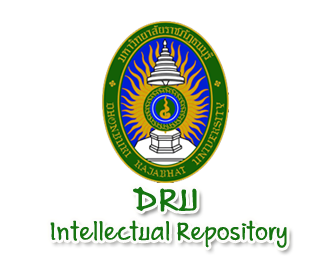Please use this identifier to cite or link to this item:
http://hdl.handle.net/123456789/1896Full metadata record
| DC Field | Value | Language |
|---|---|---|
| dc.contributor.author | Ying, Wang | - |
| dc.date.accessioned | 2024-07-09T07:33:26Z | - |
| dc.date.available | 2024-07-09T07:33:26Z | - |
| dc.date.issued | 2023 | - |
| dc.identifier.uri | http://hdl.handle.net/123456789/1896 | - |
| dc.description.abstract | The research objectives of this study were: 1) to understand the social capital in dental hospitals in Changzhou City; and 2) to study the influence of social capital on the management efficiency, doctor-patient relationship, and political engagement of dental hospitals in Changzhou City. This study employed a mixed-method approach using the exploratory sequential design. It included interviews, questionnaire surveys, and document analysis. Data were collected from 13 key informants through interviews to support qualitative research. Additionally, 200 questionnaires were distributed to the staff of relevant departments in various hospitals to gather data for quantitative research. Data analysis involved content analysis for qualitative data and descriptive statistics and multiple regression for quantitative data. The research findings revealed that: 1) The social capital of the private dental hospital in Changzhou City could be defined from three perspectives: social network, social trust, and social norms. Simultaneously, in order to further distinguish the role of different social capital for hospitals, it was divided into three categories: internal, external, and trust; 2) Regarding the influence of social capital, it was divided into its influence on the operating efficiency of hospitals, its influence on the doctor-patient relationship, and its influence on the political participation of hospitals. In empirical analysis, this study found that trust had the most significant influence on hospital social capital's formation and management efficiency, surpassing both internal and external social capital. Internal social capital improved the doctor-patient relationship through better staff treatment and communication, while external social capital benefited from investments in medical technology and equipment, enhancing patients' medical experience. Key factors influencing social capital in terms of political engagement encompassed investments in medical equipment, technology, tax incentives, and government communication frequency. Patient trust in hospitals was also closely linked to funding trust. These findings can inform hospital management strategies, policy development, and further research in the field of healthcare management and social capital. | en_US |
| dc.language.iso | other | en_US |
| dc.publisher | Dhonburi Rajabhat University | en_US |
| dc.subject | Social capital | en_US |
| dc.subject | Management efficiency | en_US |
| dc.subject | Doctor-patient relationship | en_US |
| dc.subject | Political engagement | en_US |
| dc.subject | Dhonburi Rajabhat University | en_US |
| dc.title | Determinants of Social Capital: A Case Study of Dental Hospitals in Changzhou City | en_US |
| dc.type | Thesis | en_US |
| Appears in Collections: | Thesis Dhonburi Rajabhat University - วิทยานิพนธ์ปริญญาโท มหาวิทยาลัยราชภัฏธนบุรี | |
Files in This Item:
| File | Description | Size | Format | |
|---|---|---|---|---|
| Title 1.pdf | Title 1 | 129.03 kB | Adobe PDF | View/Open |
| Title 2.pdf | Title 2 | 51.15 kB | Adobe PDF | View/Open |
| Abstract.pdf | Abstract | 58.01 kB | Adobe PDF | View/Open |
| Acknowledgement.pdf | Acknowledgement | 50.92 kB | Adobe PDF | View/Open |
| Table of content.pdf | Table of content | 128.17 kB | Adobe PDF | View/Open |
| Unit 1.pdf | Unit 1 | 246.81 kB | Adobe PDF | View/Open |
| Unit 2.pdf | Unit 2 | 479.34 kB | Adobe PDF | View/Open |
| Unit 3.pdf | Unit 3 | 173.86 kB | Adobe PDF | View/Open |
| Unit 4.pdf | Unit 4 | 696.38 kB | Adobe PDF | View/Open |
| Unit 5.pdf | Unit 5 | 271.06 kB | Adobe PDF | View/Open |
| Bib.pdf | Bib | 201.67 kB | Adobe PDF | View/Open |
| Appendix.pdf | Appendix | 860.76 kB | Adobe PDF | View/Open |
Items in DSpace are protected by copyright, with all rights reserved, unless otherwise indicated.
